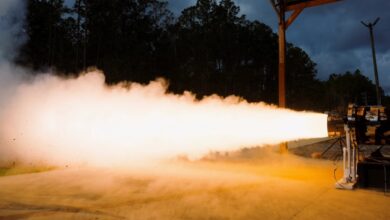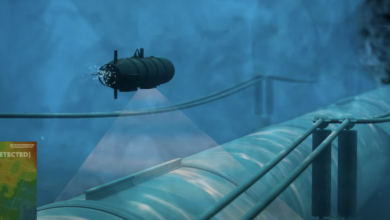US Navy to End Raytheon VDS Sonar Development
The US Navy is ending work with Raytheon Technologies to develop a sonar for its littoral combat ships (LCS) and frigates. Instead, it will procure the Thales CAPTAS-4, a sonar used by navies worldwide.
Raytheon’s AN/SQS-62 variable depth sonar (VDS) or Dual-mode Array Transmitter was a final component of the LCS anti-submarine warfare mission package. It was to be equipped on all the service’s Constellation-class guided-missile frigates currently under development.
However, after years of testing, the navy could not incorporate the sonar onto its Freedom-class littoral combat ships as expected.
Though the sonar system successfully tracked a submarine during trials, it had hydrodynamic stability and transducer reliability problems. The navy worked with Raytheon to address the issues, but the system could not meet the service’s expectations.
CAPTAS-4 to Replace Raytheon’s Sonar
Set to replace Raytheon’s Sonar, Thales’ CAPTAS-4 is widely used by anti-submarine warfare frigates, including the Royal Navy Type 23 and Type 26 class, French Navy FREMM and FDI class, the Spanish F110s, and Italian FREMMs.
The sonar system was chosen because of its proven performance and superior technical readiness, which lowers the risk of integrating it into the navy’s undersea warfare combat system.
The Thales sonar system was integrated and tested from 2010 to 2012 as part of the Advanced Demonstration Model for the navy’s littoral combat ships program.
Currently, 80 CAPTAS systems are in service worldwide.
VDS Deal
The navy announced its acceptance of the Raytheon VDS in December 2018. The system is a modular, single-tow sonar that speeds detection, discrimination, and engagement of undersea threats.
Due to its small size and lightweight design, it frees up space and manpower aboard vessels.
Frigates need a VDS system to operate in challenging environments to detect, locate, and identify a broad range of submarines, unmanned underwater vehicles, and other underwater objects.












